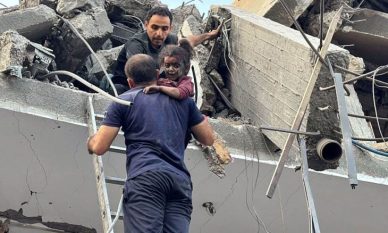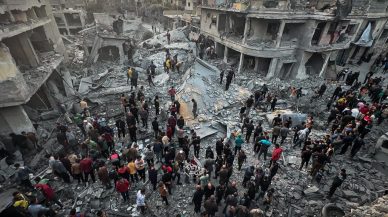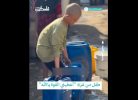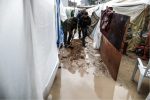NEW YORK, (PIC)
Christian Lindmeier, spokesperson for the World Health Organization (WHO), has predicted the emergence of polio cases in Gaza, which could be a setback for international efforts to eradicate the disease.
In a press conference at the United Nations on Tuesday, Lindmeier stated that Gaza residents “might already be infected, but it is difficult to detect cases of this deadly virus because most of them show no symptoms.”
Gaza’s Ministry of Health announced late Monday that polio had reemerged in the region after samples of the virus were found in sewage water. However, no actual cases of the disease have been reported yet.
Lindmeier added, “The detection of vaccine-derived polio virus in sewage suggests its presence among some individuals… indicating a high potential for virus spread, which would significantly hinder global eradication efforts.”
He mentioned that an investigation and risk assessment are still ongoing in Gaza. According to Lindmeier, polio is now only present in Pakistan and Afghanistan, but over 30 countries are still considered at risk, including neighboring Egypt and the Israeli-occupied territories.
Lindmeier emphasized that any country could face a resurgence of polio if new infections are not contained through widespread vaccination campaigns.
The WHO previously announced the shipment of over a million vaccines to protect children in Gaza from the disease. Polio, primarily spread through fecal-oral transmission, is a highly contagious virus that can invade the nervous system and cause paralysis and death in young children.
Polio cases have decreased by 99% worldwide since 1988, thanks to large-scale vaccination campaigns and ongoing eradication efforts.
James Elder, spokesperson for UNICEF, stated that the ongoing 10-month-long war has reduced polio vaccination rates from 99% to 89%. He expressed concerns about vaccine accessibility due to restrictions on humanitarian aid into the region.
Elder added, “It is challenging to distribute vaccines amidst mass displacement, destroyed infrastructure, and a highly unsafe working environment, putting many children at risk of contracting the disease.”
Earlier on Tuesday, the UN Relief and Works Agency reported 40,000 cases of hepatitis A since the war began. Gaza residents face dire environmental conditions due to poor sanitation, sewage overflows, and limited access to drinking and cooking water, exacerbated by the blockade on fuel entry and damaged infrastructure.















